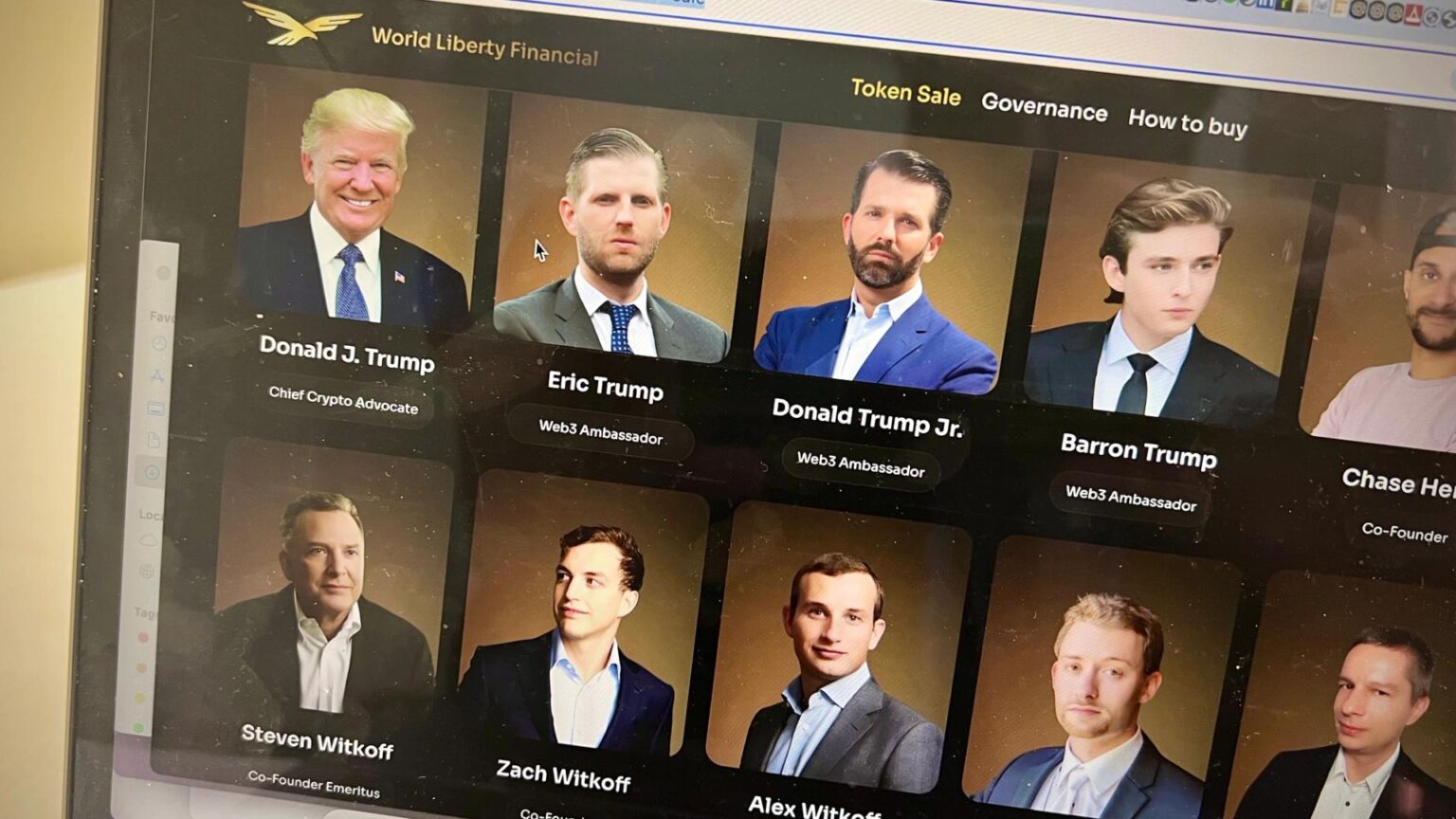The Evolving Landscape of Cryptocurrency and Political Ties
Shifts in Family Holdings and Regulatory Developments
Recent disclosures suggest a notable change in the financial interests of President Donald Trump’s family concerning the cryptocurrency sector. According to detailed reports from World Liberty Financial’s official disclosures, the Trump family appears to have divested a significant portion of their stake in the parent company that oversees WLFI, a prominent player in the crypto industry known for issuing its own stablecoin. This move coincides with the U.S. Senate’s recent passage of a bipartisan bill aimed at regulating digital assets, signaling a pivotal moment for the industry.
Ownership Changes and Their Implications
Specifically, the family’s ownership stake in the parent company has decreased from approximately 60% to around 40%, as per legal filings listed on the company’s website. The entity responsible for this shift, DT Marks DEFI LLC, is identified as “an entity affiliated with Donald J. Trump and certain of his family members.” This reduction in ownership stake raises questions about the family’s strategic positioning within the crypto space amid evolving regulatory landscapes.
Financial Gains and Industry Influence
Trump’s involvement in cryptocurrency has reportedly been financially rewarding, with estimates indicating he has personally earned tens of millions of dollars through various crypto-related ventures. Beyond personal gains, his activities have placed him at the center of ongoing debates over how digital assets should be regulated in the United States. The current stablecoin legislation, which is now under review by the House of Representatives, faced temporary delays in the Senate due to concerns raised by Democrats about Trump’s own stablecoin operations.
Political Controversies and Regulatory Challenges
Despite assertions from Trump’s allies that his business dealings are transparent, critics argue that the family’s crypto activities remain opaque, lacking comprehensive disclosures about individual ownership stakes or management roles. Notably, the specifics of the family’s involvement with World Liberty Financial-such as ownership percentages or operational control-are still unclear. This ambiguity fuels ongoing scrutiny from lawmakers, including Senators Elizabeth Warren, Richard Blumenthal, and Chris Murphy, who have voiced concerns about potential conflicts of interest and the appropriateness of a sitting president influencing crypto regulation.
Broader Industry Engagements and Public Perception
Trump’s engagement with the crypto industry extends beyond financial interests. Recently, he hosted a private dinner with key investors in his personal memecoin, many of whom are foreign nationals whose identities remain undisclosed. This event drew criticism for its lack of transparency and for potentially influencing the perception of his stance on digital assets. Additionally, Trump has ventured into the NFT market, with his media company announcing plans to raise $2.5 billion to establish a Bitcoin treasury. His son, Eric Trump, is also involved in a new Bitcoin mining enterprise, illustrating the depth of the family’s integration into various facets of the crypto ecosystem.
Industry Growth and Future Outlook
The cryptocurrency sector continues to expand rapidly, with recent statistics indicating that global market capitalization has surpassed $2 trillion, reflecting increased institutional interest and mainstream adoption. Stablecoins, in particular, are gaining prominence as a bridge between traditional finance and digital assets, with regulatory clarity expected to further bolster their stability and acceptance.
Conclusion: Navigating a Complex Intersection
As the Trump family’s financial ties to crypto evolve, their influence underscores the complex relationship between politics and digital assets. While some see their involvement as a sign of growing legitimacy for cryptocurrencies, others remain wary of potential conflicts of interest and transparency issues. Moving forward, the industry’s trajectory will likely depend on how regulators balance innovation with oversight, ensuring that digital assets can thrive within a clear and fair legal framework.
Note: This article is a comprehensive reimagining of the original content, incorporating current industry statistics and a fresh perspective to provide a nuanced understanding of the intersection between political figures and the cryptocurrency landscape.

